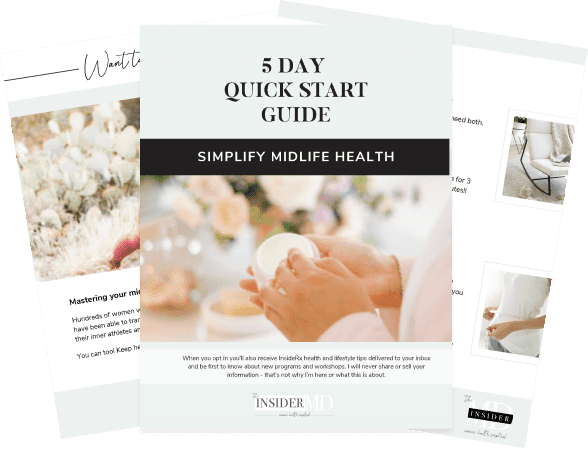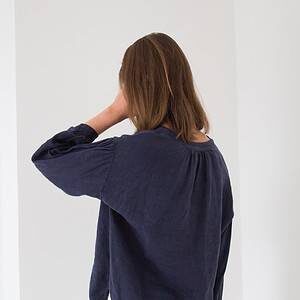
Menopause And Joint Pain – Are They Related?
Are you perimenopausal and noticing joint pain? Around half of women do. Musculoskeletal pain, joint pain, and arthritis are all more common in women. The prevalence increases with age and, for some, may be associated with the onset of menopause.
In this blog, we’ll discuss the possible connection between menopause and joint pain, other common reasons for joint pain around midlife, and some simple remedies to try.
Are Menopause And Joint Pain Related?
Swollen, achy joints are common as we age. No definitive cause has been determined, but research suggests that the estrogen decline of menopause may play a role in some women.
Estrogen protects joints and reduces inflammation, so as estrogen levels drop during the menopause transition, inflammation in the musculoskeletal system can increase and you may begin to notice more aches and pains than you used to. Over time, arthritis may develop.
Does Menopause Joint Pain Mean I Have Arthritis?
With menopause-related joint pain, the joints can become less lubricated and flexible as your hormones decline, but after menopause, when your hormone levels stabilize, your joint pain can improve. There are many types of arthritis, but the two main types are osteoarthritis (OA) and rheumatoid arthritis (RA), and both of these tend to coincide with the onset of menopause.
Menopause and Osteoarthritis
OA is caused by wear and tear of the protective cartilage of the joints and tends to affect the large, weight bearing, hip, and knee joints first. It typically occurs in midlife, which is the same time that women are starting to go through menopause.
Some wear and tear of the cartilage is natural as we age, but it can be exacerbated by overuse such as with runners or athletes, obesity, injury, multiple pregnancies, poor diet, and heavy lifting. Genetics may also play a role. The cartilage breaks down in OA, causing pain, swelling, and problems moving the joint, which can get worse over time.
An x-ray will show narrowing of the joint space from the thinning cartilage and other damage to the joint like bone spurs from increased wear.
Purely menopausal joint pain doesn’t deteriorate the cartilage in this way, therefore it wouldn’t show up on an x-ray.
Menopause and Rheumatoid Arthritis
RA is an autoimmune disease where the immune system attacks the tissues surrounding the joints. It is characterized by flare-ups of swelling and pain followed by periods where symptoms are improved or absent.
The joints of the hands and feet are most commonly affected, but other joints can be involved. RA can be diagnosed by a blood test. Joint damage from RA looks different on x-ray than OA. There are often characteristic erosions and swelling of the tissues surrounding the joints.
Research has shown that RA symptoms get worse during menopause and women who go through early menopause are more likely to develop RA than those who experience normal to late menopause.
What Are Other Causes Of Joint Pain At Midlife?
Other causes of musculoskeletal pain around the time of menopause include:
- Weight gain. Joint pain seems to be worse for those who are overweight.
- Lack of Sleep. Poor sleep makes pain seem worse.
- Mood disturbances. Higher pain levels are correlated with mood changes such as depression and irritability.
- Stress. Stress can increase the perception of pain. (learn to say ‘no’ sometimes.)
How is Menopause Joint Pain Treated?
Losing weight, making sleep a priority, and limiting stress can go a long way towards improving chronic pain. Staying active is also helpful. Pain often gets worse when you become sedentary. As the physical therapists say, ‘motion is lotion’.
Other therapies like nonsteroidal anti-inflammatory medications (such as Advil, Tylenol), heat packs, and non-addictive prescription medications like gabapentin (Neurontin) can also help. Avoid opioids that put you at increased risk for dependency.
Menopause and Joint Pain: Final Thoughts
Don’t suffer in silence. About 42% of women reported in a national survey that they’ve never discussed menopause symptoms with their doctor. Even if a symptom can’t be entirely resolved, there are things that can help you feel much better.
Talk to a menopause specialist who understands the effects of menopause hormone decline on joint pain and who can, if necessary, refer you to appropriate experts in arthritis and chronic pain, who avoid opioid treatments.

MEET DR. ELLEN
My mission is to bring you the most up-to-date, proven medical information, simplified, so you can make confident, educated decisions about your health.
I'M LOOKING FOR...
grab your 5 day
quick start guide



